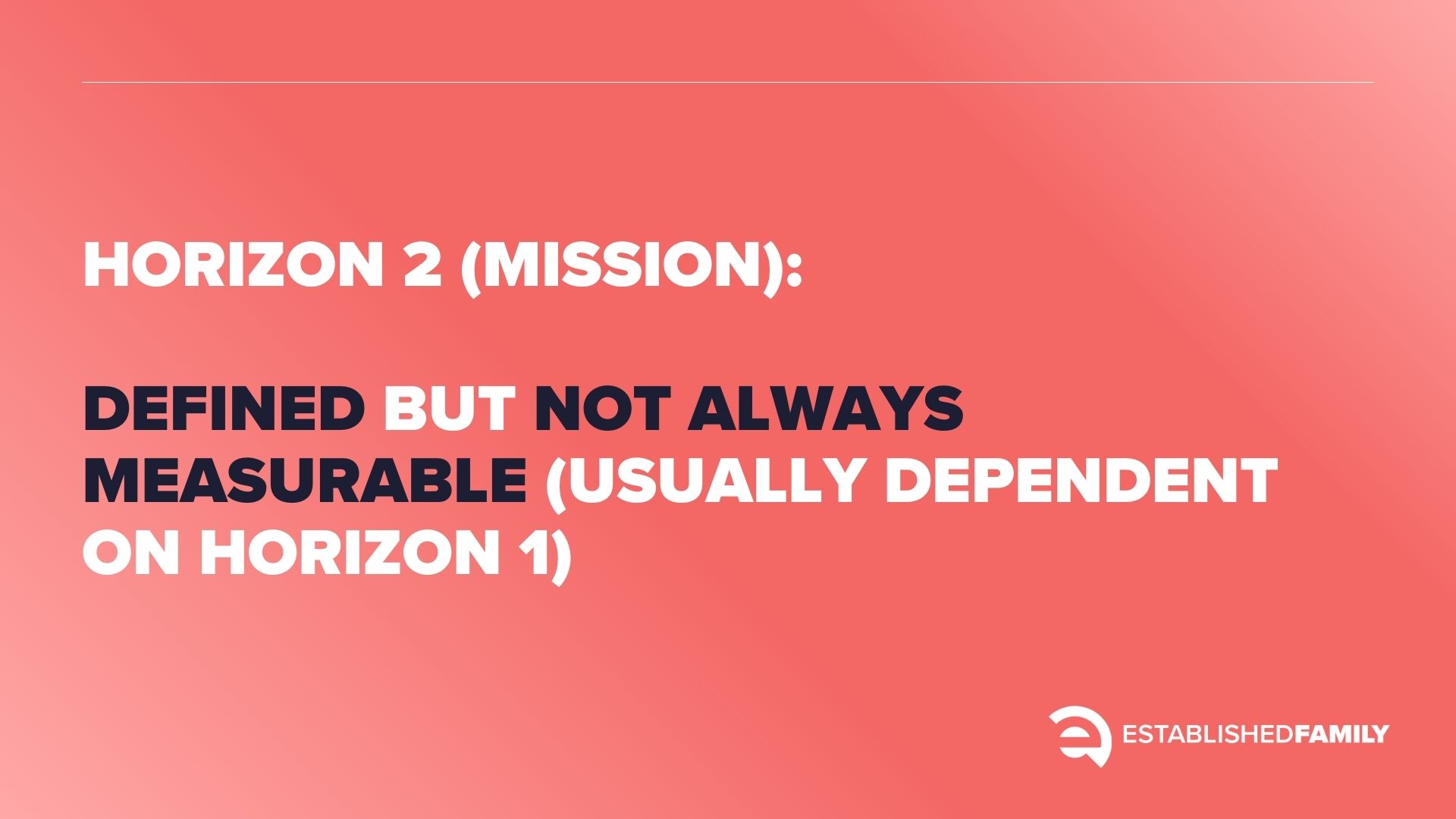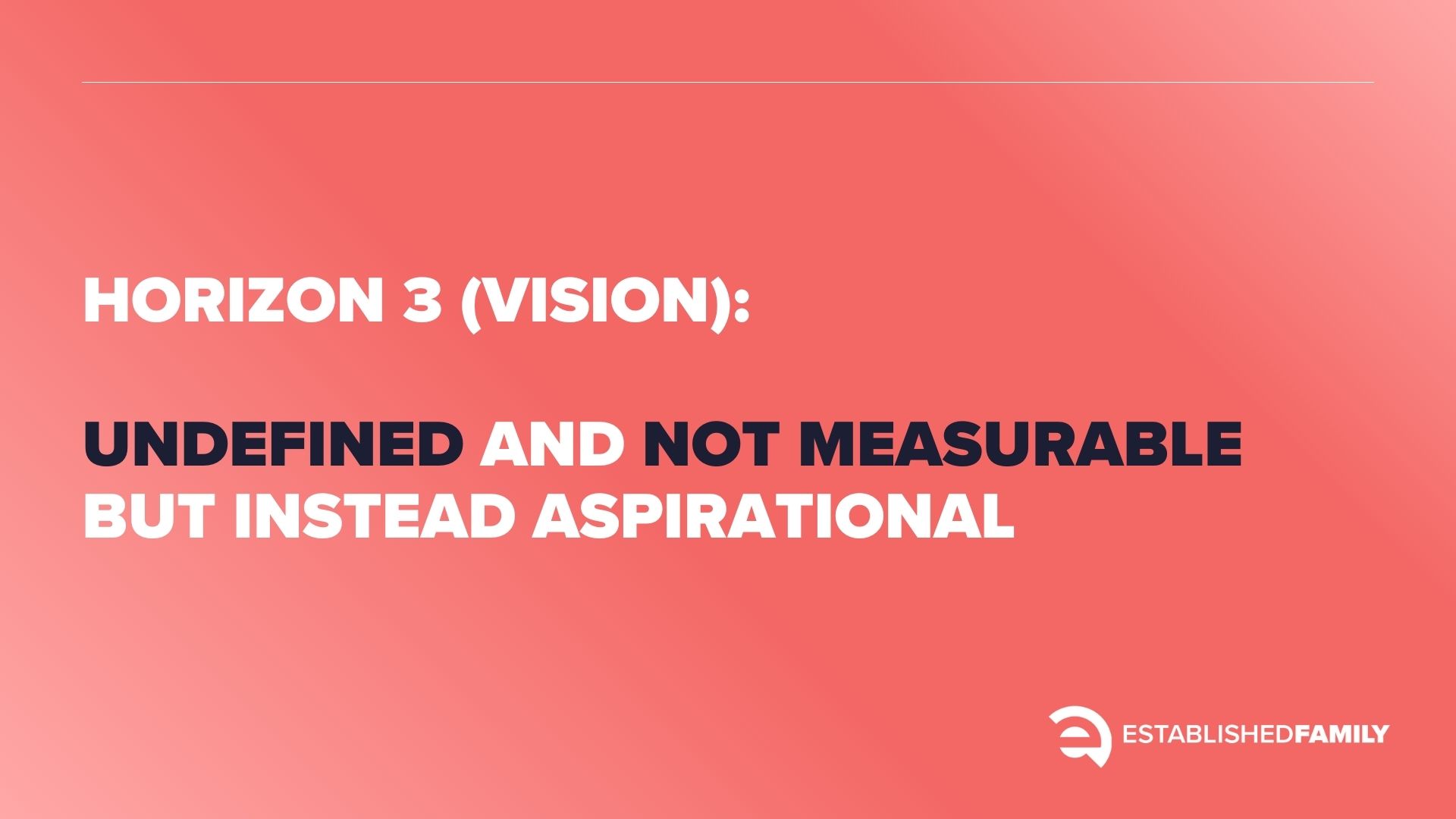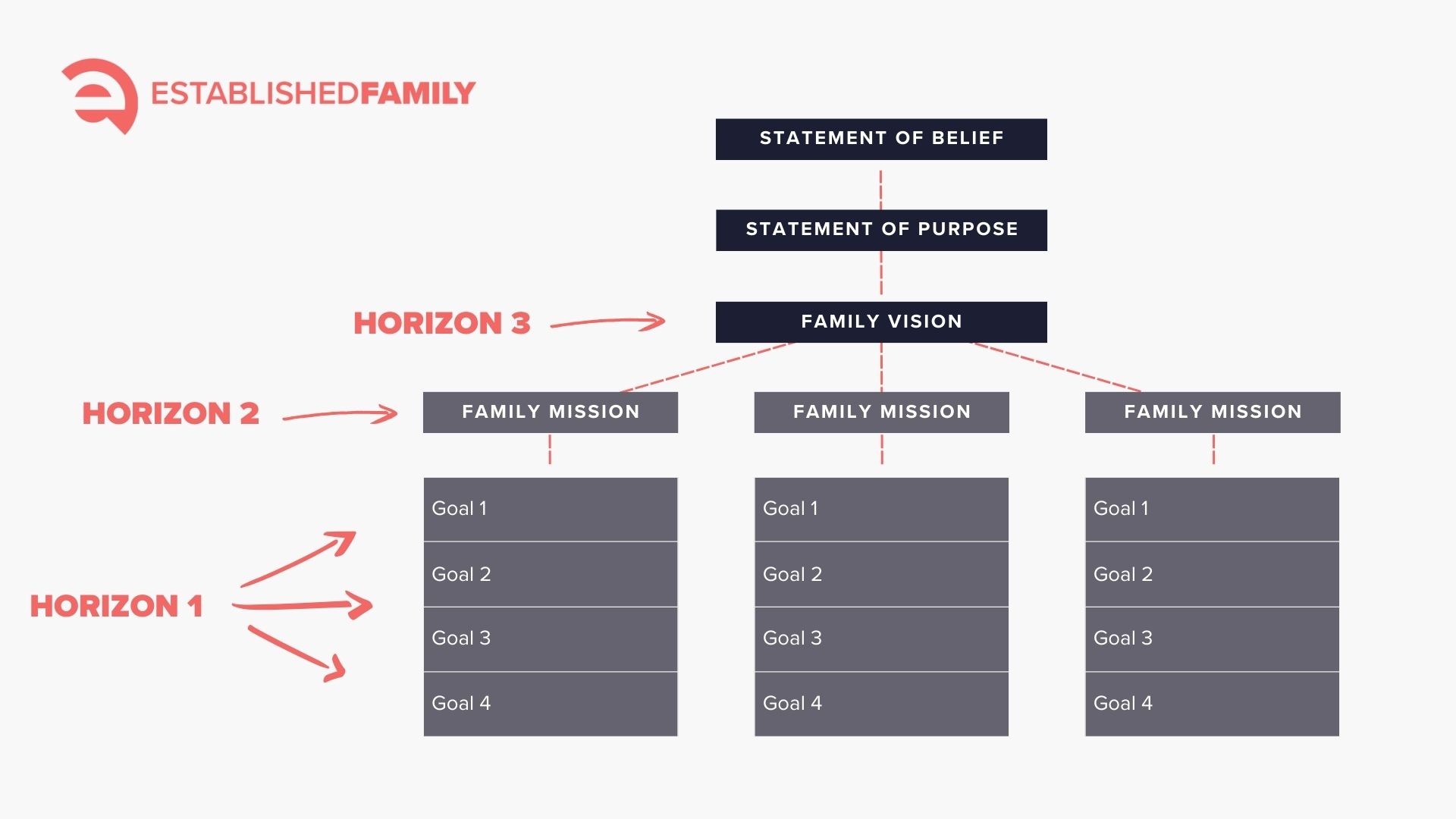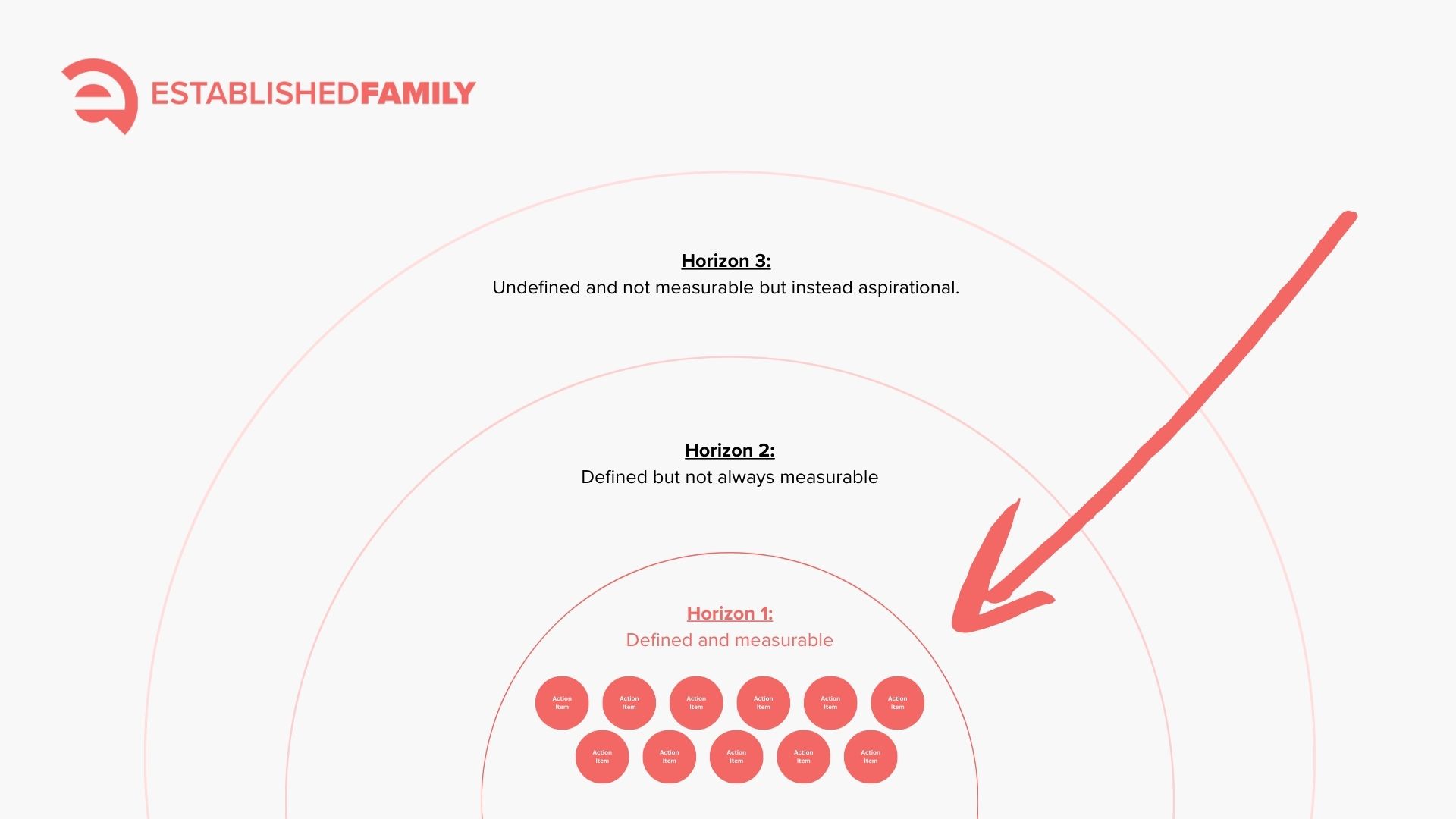Let’s get something straight, goal setting shouldn’t be a hard concept.
And really it’s not…
…what is hard, though?
Getting to the place where we are READY to set goals and making sure those goals are Kingdom-derived.
The bible is clear that we can not establish ourselves through foolish, wicked or selfish desires—the root of the RIGHTEOUS shall not be moved.
So my disclaimer is this:
If there are some things that you need to get in order in your home, get delivered from in your life, or receive healing from in your relationships before you set goals, then please do that first. You’ll see why later in the article when we break down the 3-types of goals.
Only then, can we begin to set goals that allow us to build towards having a successful family that lives with purpose.
In the context of a Kingdom mindset, goal-setting takes on a deeper, more profound meaning rooted in spiritual principles and divine purpose.
This article explores the significance of setting goals from a biblical perspective, differentiates between various types of goals, and provides practical guidelines for aligning our goals with God’s will.
Biblical Foundation for Goal-Setting
The concept of goal-setting is deeply embedded in the Bible. The first directive given to humanity was to “increase” through being fruitful and multiplying, and to “subdue” the earth.
This mandate is found in Genesis 1:27-28:
So God created man in His own image; in the image of God He created him; male and female He created them. Then God blessed them, and God said to them, “Be fruitful and multiply; fill the earth and subdue it; have dominion over the fish of the sea, over the birds of the air, and over every living thing that moves on the earth.”
This instruction highlights three key aspects of our purpose on earth:
- Multiplying Resources and Gifts: We are called to increase what we have, be it talents, resources, or influence.
- Filling the Earth: Our growth and expansion should lead to positive change and development in our surroundings.
- Walking in Authority: We are meant to exercise dominion, not in a domineering sense, but through stewardship and responsibility.
When we live with a Kingdom mindset, we operate according to these principles, experiencing growth, authority, and fulfillment.
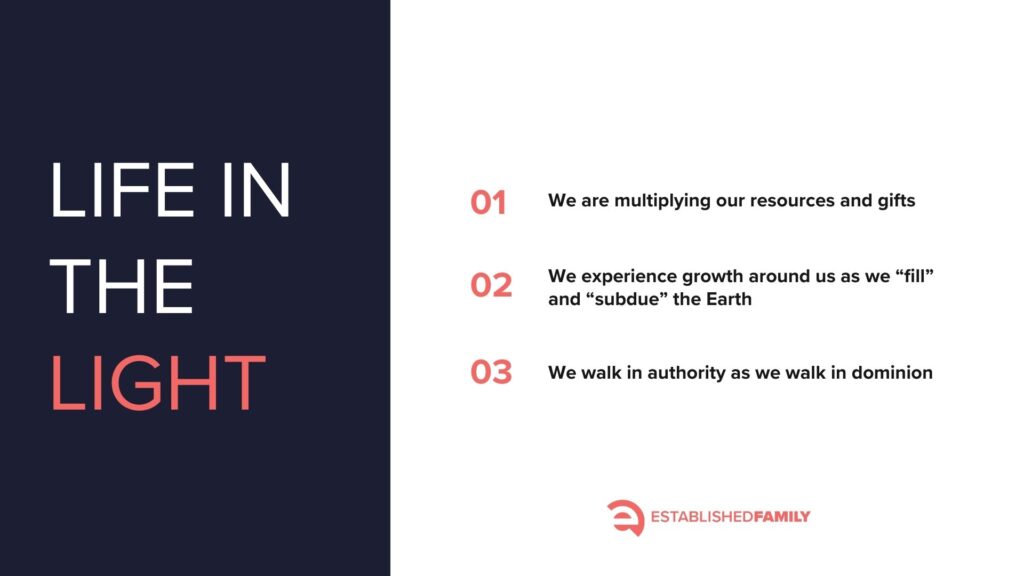
Conversely, living under the curse—characterized by lack, bondage, and destruction—leads to a life contrary to God’s original design.
Scriptural Guidance on Goal-Setting
Throughout Scripture, we find numerous references that provide guidance on how to live out God’s instructions. Here are a few examples:
- Proverbs 16:3: “Commit your works to the LORD, And your thoughts will be established.”
- Proverbs 19:21: “There are many plans in a man’s heart, Nevertheless the LORD’s counsel—that will stand.”
- Matthew 6:33: “But seek first the kingdom of God and His righteousness, and all these things shall be added to you.”
- James 2:26: “For as the body without the spirit is dead, so faith without works is dead also.”
- Philippians 3:14: “I press toward the goal for the prize of the upward call of God in Christ Jesus.”
- Hebrews 6:11-12: “And we desire that each one of you show the same diligence to the full assurance of hope until the end, that you do not become sluggish, but imitate those who through faith and patience inherit the promises.”
These verses emphasize commitment to the Lord, seeking His kingdom, and the necessity of faith and diligent work.
From these scriptures, we can conclude that Kingdom living and goal-setting involve:
- Commitment to the Lord: Aligning our actions with God’s will.
- God’s Purpose and Counsel: Seeking our Father’s guidance in our plans.
- Seeking His Kingdom: Prioritizing spiritual growth and God’s righteousness.
- Working with Faith: Combining faith with purposeful actions.
- Perseverance: Pressing towards our unique calling.
- Hope through Diligence and Patience: Maintaining hope and persistence in our endeavors.
Types of Goals
Understanding the types of goals we set is crucial in ensuring they align with God’s will.
There are three main categories of goals:
Kingdom Goals
Kingdom Goals are inspired by the Holy Spirit and reflect God’s nature and purposes. They are characterized by:
- Spirit-filled
- Pure
- Fruitful
- Multiplied
- Abundant
- Authoritative
- Expansive
- Diligent
- Hopeful
- Faithful
- Patient
- Worshipful
- Covenantal
- Kingdom-derived
- Require God’s counsel
Flesh Goals
Flesh Goals are rooted in our human desires and weaknesses. They often stem from selfish motives and lack spiritual substance. These goals are:
- Unclean
- Jealous
- Selfish
- Quarrelsome
- Compromised
- Idolized
- Faithless
- Gluttonous
- Unfocused
- Unjustly gained
- Rooted in rejection
- Soul-derived
- Require our own understanding
Hellish Goals
Hellish Goals are destructive and contrary to God’s purposes. They are influenced by negative spiritual forces and lead to harm and separation from God. These goals are:
- Destructive
- Stolen
- Death-filled
- Hell-derived
- Transactional (require sacrifices)
- Contractual
Referring to these categories can help us discern the source and nature of our goals. We must ask ourselves, “Where did this goal come from?” and evaluate whether our ambitions align with God’s will or stem from fleshly or hellish desires.
Ensuring Kingdom-Derived Goals
To ensure our goals are Kingdom-derived, we need to reflect on our motivations and align our desires with God’s purposes. This process may involve:
- Meditation and Prayer: Spending time in God’s presence to seek His guidance.
- Scriptural Study: Understanding biblical principles and examples of godly goal-setting.
- Self-Reflection: Evaluating our intentions and the origins of our goals.
- Repentance: Turning away from selfish or destructive ambitions and aligning with God’s will.
Many of us may need to meditate on our identity as sons and daughters of God, recognizing that true fulfillment comes from living out His purposes, not merely achieving worldly success.
Goal-Setting Timelines
The timing of our goals is crucial. We need wisdom to pursue our goals according to God’s timing. One helpful framework is viewing goals in horizons:
Horizon 1
These goals can be accomplished without any prerequisite steps. They are immediate and measurable.
Horizon 2
These goals depend on the completion of Horizon 1 goals. They become actionable as we make progress in Horizon 1.
Horizon 3
These are long-term, aspirational goals that require consistent effort in Horizons 1 and 2. They are refined over time as we grow in our spiritual journey.
If we were to look at those horizons according to our Family Design it would look a little something like this:
Measuring Goals
Horizon 1 goals are the only ones that are directly measurable. They can be assessed things like this (but not limited to this list):
- Actions Taken: Specific steps or activities completed.
- Items Completed: Tangible outcomes achieved.
- Units Gained or Lost: Quantifiable progress made.
- Skills Acquired: New abilities developed.
- Dollars Made: Financial milestones reached.
- Time Passed: Duration spent on specific tasks.
For example, if your Horizon 3 goal is to become a social media influencer, your Horizon 2 goal might be to build a large private community. Your Horizon 1 goals could include posting on social media regularly, creating a brand, gaining followers, and analyzing results after a set period.
Practical Goal-Setting Exercise
Here’s a practical exercise to help you set and measure your goals:
- Horizon 3 Goal: Define your long-term, aspirational goal.
- Horizon 2 Goal: Identify intermediate goals that lead to your Horizon 3 goal.
- Horizon 1 Goals: Break down into specific, measurable actions. For example:
- Actions Taken: __________________________________
- Items Completed: __________________________________
- Units Gained or Lost: __________________________________
- Skills Acquired: __________________________________
- Dollars Made: __________________________________
- Time Passed: __________________________________
Frequently Asked Questions
Do my goals have to be business-related?
No, your goals can encompass various aspects of life, including personal growth, family, ministry, and more.
What if one of my Horizon 3 goals is measurable (like making $1,000,000)?
While some long-term goals may have measurable components, focus on the steps and progress in Horizons 1 and 2.
What if making money or gaining material things doesn’t feel like a Kingdom goal?
Assess the motivation behind these goals. If they align with stewardship and God’s provision, they can be Kingdom goals.
How do I involve my family in goal-setting?
Include your family in discussions about shared values, visions, and goals. Encourage collective prayer and reflection.
How often should I revisit my goals?
Regularly review and adjust your goals to ensure they remain aligned with God’s will and your current circumstances.
What happens if my goals change?
Be flexible and open to God’s leading. It’s natural for goals to evolve as you grow and gain new insights.
What if I don’t have a larger mission or vision for my family/life?
Seek God’s guidance through prayer and Scripture. He will reveal His purpose for you as you remain faithful and diligent.
Conclusion
Setting goals from a Kingdom perspective is a profound and transformative practice. It aligns our lives with God’s will, ensuring that our efforts lead to true fulfillment and divine purpose. By understanding the types of goals, seeking God’s guidance, and measuring our progress, we can live out the mandate given to humanity—to be fruitful, multiply, and exercise dominion on earth. Let us commit our works to the Lord, seek His Kingdom, and press toward the upward call in Christ Jesus.





